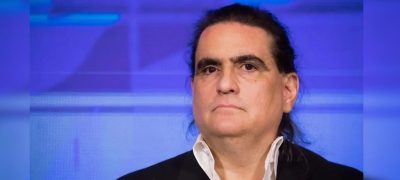Iran planned retaliation against Israel for the killing of Hamas leader Ismail Haniyeh in Tehran is expected to take some time, according to a spokesperson from the Islamic Revolutionary Guard Corps (IRGC). Ali Mohammad Naeini mentioned that “time is on our side” and that the response might be delayed.
Mohsen Rezaee, former IRGC commander-in-chief, stated that Iran’s actions would be very strategic. Tensions have been high since Haniyeh’s assassination last month, which followed the killing of Hezbollah commander Fu’ad Shukr in an airstrike in Beirut. While Israel has admitted responsibility for Shukr’s death, it has not confirmed involvement in Haniyeh’s killing, which reportedly involved a hidden explosive device.
Read more: More than 32 Pakistani Pilgrims Killed in bus Accident in Iran
Iran and its allies, including Hezbollah and Hamas, have vowed retaliation for both killings, leading to intense diplomatic efforts to prevent a broader conflict. Iranian Supreme Leader Ali Khamenei has warned of severe consequences for Israel, and Hezbollah has declared that a response to Shukr’s death is inevitable.
However, the IRGC spokesperson’s recent comments suggest a potential softening of Iran’s initial aggressive stance. Naeini emphasized that Iran will not act hastily and that its response could differ from previous actions. He also claimed that the Israeli regime has already faced defeat and that U.S. politicians recognize this, pointing to the ongoing Gaza conflict as evidence.

Diplomatic efforts to achieve a ceasefire between Israel and Hamas intensified following the deaths of Shukr and Haniyeh, with both Arab and Western officials working to prevent a full-scale war.
Former IRGC commander Mohsen Rezaee told that a ceasefire in Gaza is urgently needed and criticized the U.S. and Israel for prolonging the conflict. He suggested that if the U.S. had intervened earlier, the war might not have dragged on, and argued that the extension of the war benefits neither side.
Rezaee also indicated that Iran is carefully considering its response to Israel, aiming for calculated actions rather than hasty retaliation. Following resumed talks in Doha, U.S. Secretary of State Antony Blinken noted that Israel has agreed to a proposal for a ceasefire, with the next step being Hamas’s agreement to the same terms.
While there are signs that Iran might reconsider its plans if a ceasefire is achieved, Tehran’s mission to the UN recently stated that its planned retaliation is unrelated to the Gaza ceasefire discussions.
Some diplomats believe that Iran and Hezbollah might be hesitant to act, concerned that their responses could lead to a broader conflict, and that their public threats of retaliation could have backfired.









